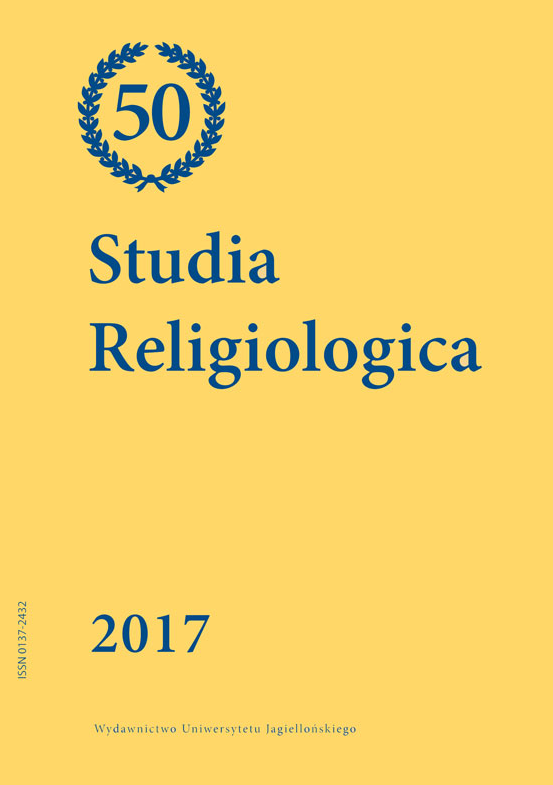Phenomena of Religious Consciousness in the Genesis of Neo-Vedantism: Understanding in the Study of Bengal Renaissance Philosophical Thought
Phenomena of Religious Consciousness in the Genesis of Neo-Vedantism: Understanding in the Study of Bengal Renaissance Philosophical Thought
Author(s): Tatiana G. SkorokhodovaSubject(s): Non-European Philosophy, Theology and Religion, Indian Philosophy
Published by: Wydawnictwo Uniwersytetu Jagiellońskiego
Keywords: Vedanta; Neo-Vedantism; the Bengal Renaissance; Rammohun Roy; religious consciousness; understanding of other religion; dialogue;
Summary/Abstract: The influences of the phenomena of religious consciousness on the thinking and philosophy of Modern India are described in the article, based on the Bengal Renaissance works of the nineteenth and early twentieth centuries, especially those of the inaugurator Rammohun Roy. He created the basic foundations of Neo-Vedanta philosophy predominantly owing to the special phenomena of religious consciousness. The basic phenomena are primordial religious experience and the experience of contemplation and understanding of an Other religion (Islam and Christianity). Derivative phenomena are “monotheistic revolution” (term by G. Pomerants) and dialogue of religions in personal consciousness. Opening the resemblance of Vedanta and other religious traditions’ meanings to dialogue helped to achieve a new interpretation of the darśana. The novelty of Neo-Vedantism lies in the appearance of mighty ethical and social vectors of thinking. The combination of the aforesaid phenomena created the method of philosophizing – free dialogue between one’s own tradition and another in order to enrich indigenous thought.
Journal: Studia Religiologica. Zeszyty Naukowe Uniwersytetu Jagiellońskiego
- Issue Year: 50/2017
- Issue No: 4
- Page Range: 321-334
- Page Count: 14
- Language: English

